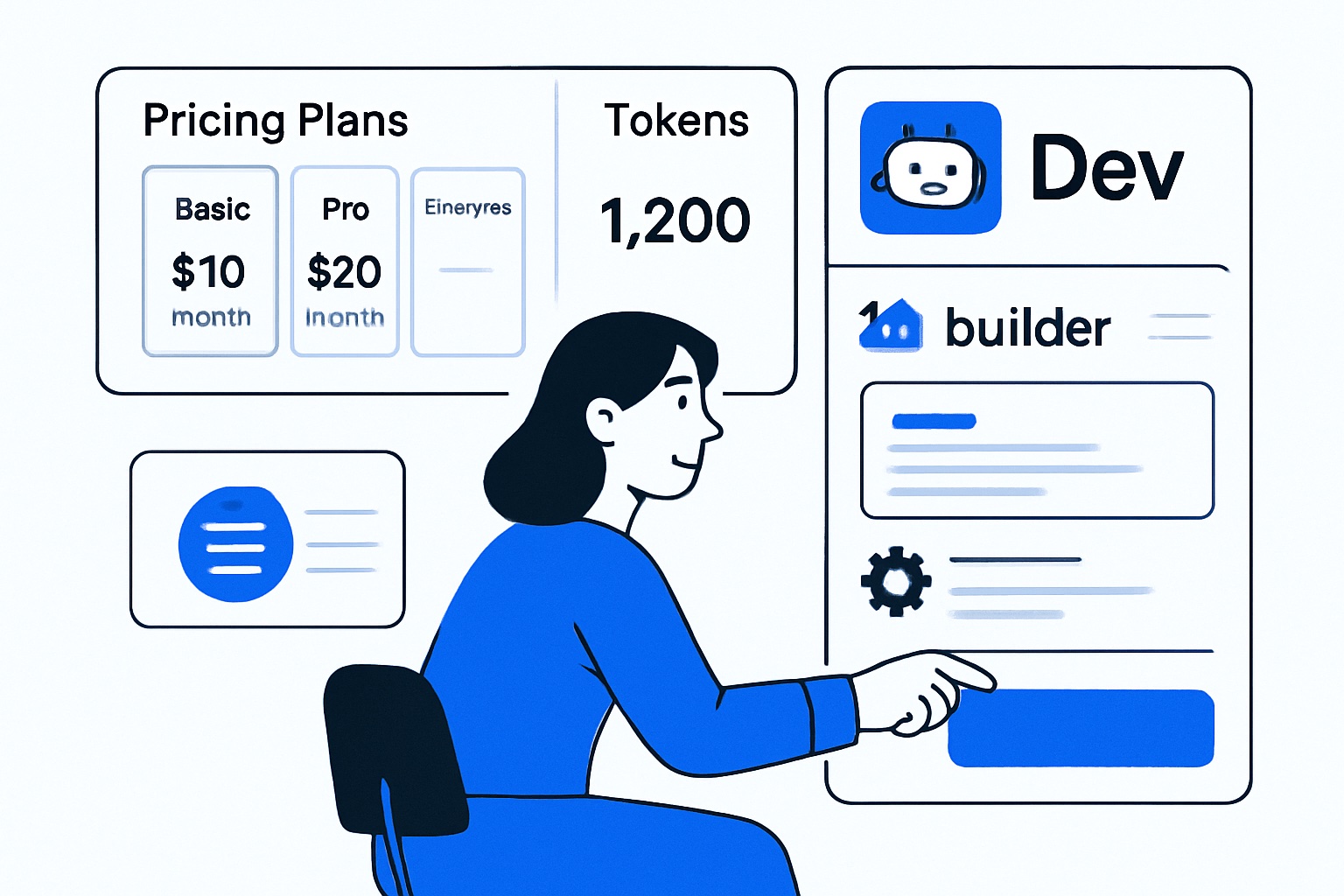The world of software development is moving faster than ever. Staying ahead means knowing where to find the best sites dev for up-to-date tools and knowledge.
In this article, you’ll discover the top 10 platforms every developer should bookmark in 2025. From coding help and no-code solutions to open-source collaboration and expert documentation, we cover it all.
These resources can save you time, boost your career, and connect you with the global dev community. Ready to level up? Dive in and explore which sites dev will make a difference for you.
Why Developers Need High-Quality Resource Sites in 2025
Staying competitive as a developer in 2025 means more than just writing code. The tech landscape is shifting rapidly, and the right sites dev can make all the difference in your workflow, career growth, and even your day-to-day satisfaction.
The Complexity of Modern Development
Today’s tech stacks are a maze of languages, frameworks, and cloud services. Even experienced developers can feel overwhelmed by the sheer number of tools and updates. With so many moving parts, having reliable sites dev as your go-to reference points is no longer optional—it’s essential.
Modern development often requires working across multiple platforms and integrating with third-party APIs. Keeping up with documentation changes, security patches, and best practices is a challenge. The best sites dev offer organized, up-to-date information, making it easier to navigate ever-evolving technologies.
The Rise of Prototyping, AI, and No-Code
Speed is the name of the game. Teams are expected to deliver prototypes, MVPs, and new features faster than ever. The explosion of AI and no-code/low-code platforms gives developers new superpowers, but also creates a need for high-quality resource hubs.
Sites dev now include platforms that help you build, test, and launch apps without writing every line of code from scratch. These resources are especially helpful for startups and enterprises chasing rapid innovation. For a deep dive into how no-code platforms are reshaping development, check out the 2024 Stack Overflow Developer Survey Results, which highlights the growing adoption of these tools among developers.
Community and Continuous Learning
No developer is an island. The best sites dev bring together communities where you can ask questions, share knowledge, and stay motivated. From debugging tricky bugs to learning the latest framework, peer support accelerates your growth.
Online communities also help you network with others in your field, opening doors for collaboration or even new job opportunities. As remote and hybrid work models become the norm, global access to these knowledge hubs is more important than ever.
Key Community Benefits:
- Peer-to-peer troubleshooting
- Exposure to new tools and workflows
- Real-time feedback and mentorship
Saving Time and Preventing Burnout
Curated sites dev act as time-saving shortcuts. Instead of reinventing the wheel, you can access code snippets, best practices, and problem-solving threads in seconds. This efficiency not only boosts productivity but also helps prevent burnout by reducing repetitive tasks.
Consider this: According to recent data, 87% of developers rely on online resources daily. Those who use at least three trusted sites dev report resolving issues 40% faster. Real-world examples abound—developers often cite how a single well-timed answer or template from a resource site shaved hours off their workload.
In a world where technology never sleeps, having the right sites dev in your toolkit ensures you’re always a step ahead.
10 Best Sites Dev Resources for Developers in 2025
In the rapidly changing world of programming, having the right sites dev resources bookmarked can make or break your workflow. Whether you're debugging, building, or networking, these platforms are essential for every developer looking to stay ahead in 2025.
GitHub
When it comes to sites dev professionals trust, GitHub is the undisputed king. It offers free public repositories and paid options for private or enterprise needs.
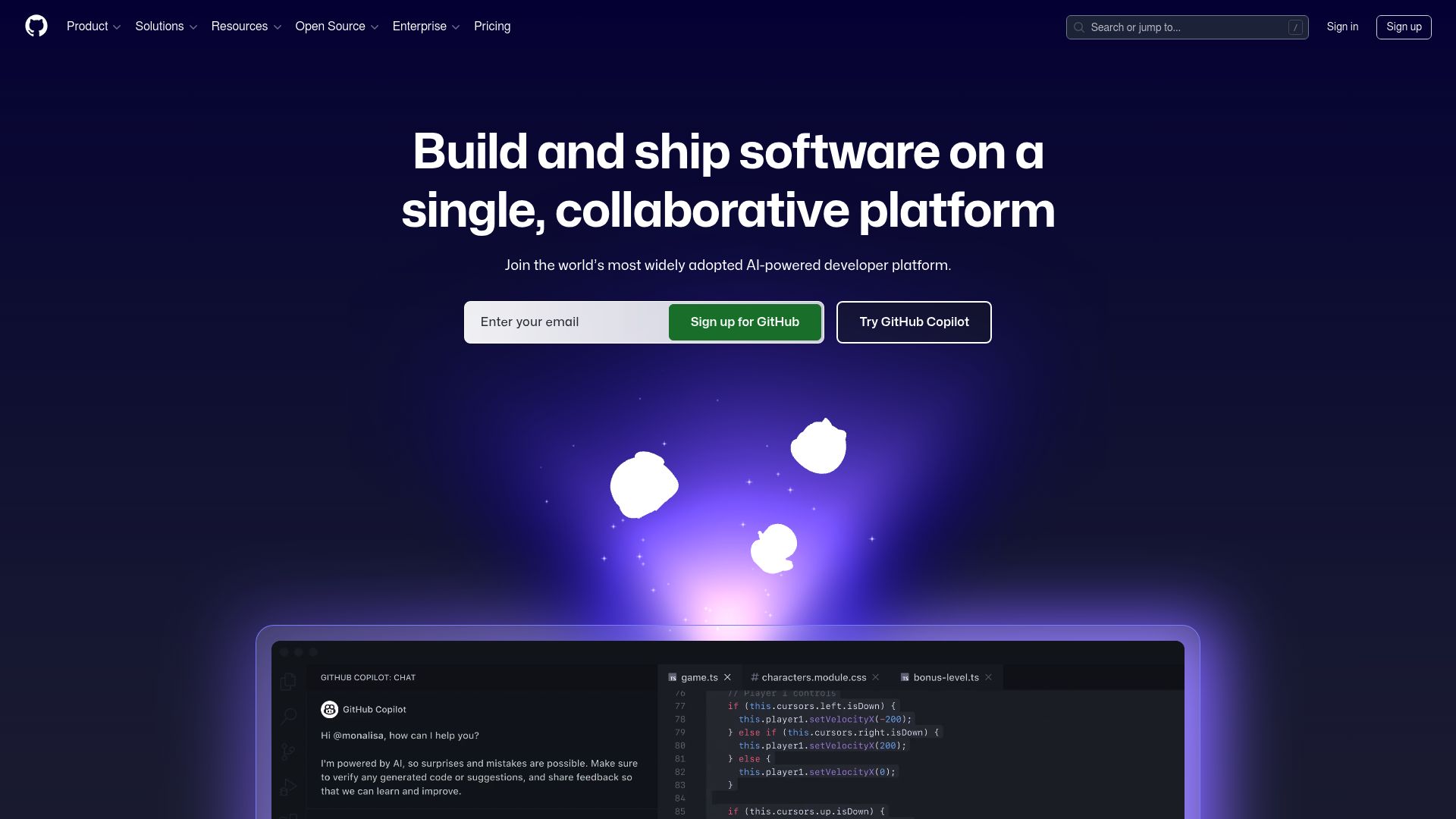
Core Features:
- Open-source code hosting
- Version control with Git
- Issue tracking and pull requests
- GitHub Actions for CI/CD
Key Benefits: GitHub connects millions of developers, enabling seamless collaboration across sites dev projects. Its massive ecosystem supports everything from hobbyist scripts to enterprise frameworks.
Target Audience:
Anyone in sites dev—from beginners to large teams.
Use Cases:
- Sharing and managing code
- Open-source contributions
- Project management
Pros:
Ubiquitous, robust, vast community.
Cons:
Can overwhelm new users.
Example:
Frameworks like React and TensorFlow are built openly here. For a deeper look at how open-source communities grow and thrive, check this Diversity and Growth in Open Source Communities.
Stack Overflow
Stack Overflow is where sites dev questions get answered fast. It's free for individuals, with paid team options.
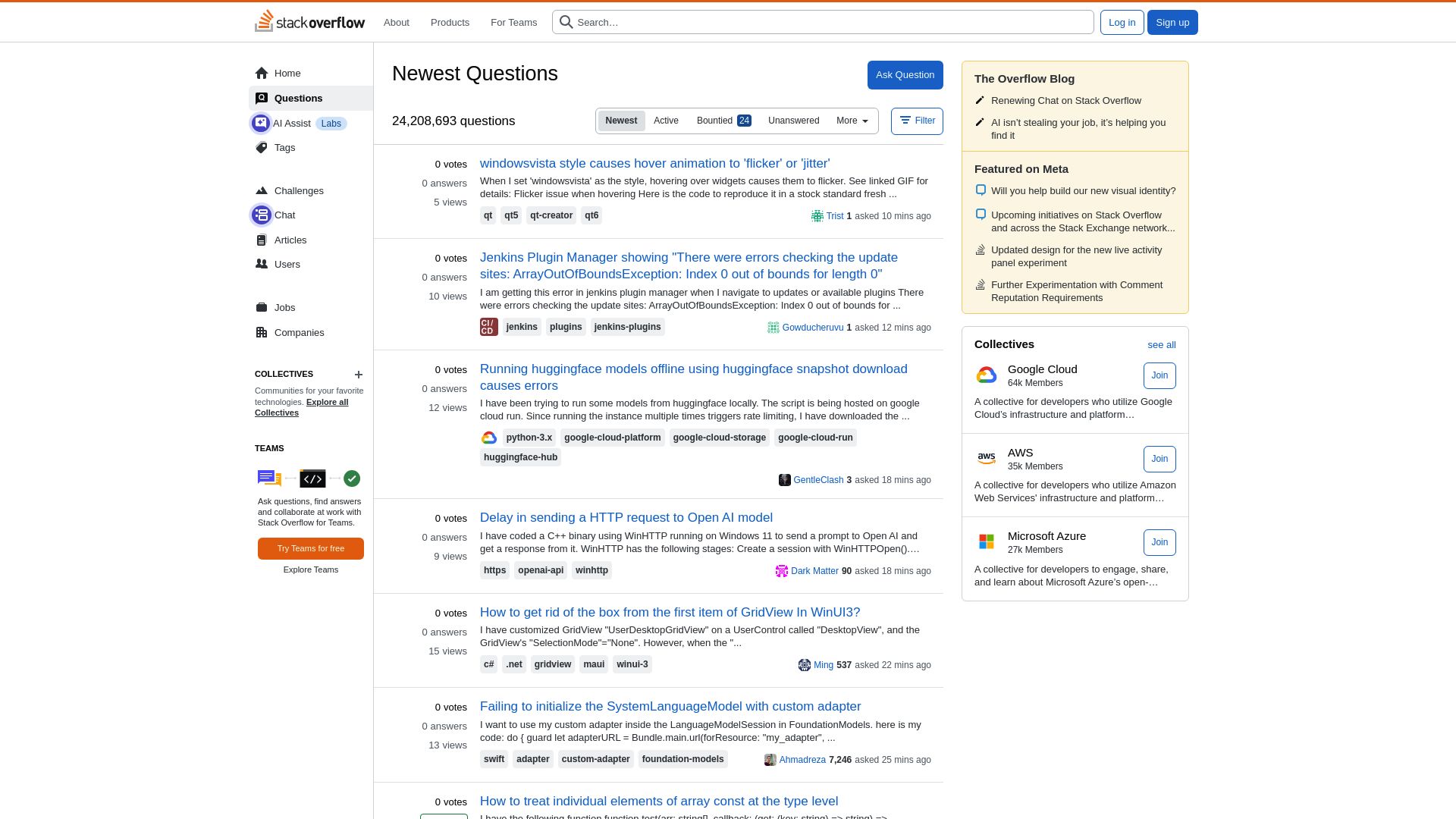
Core Features:
- Q&A platform with tags and reputation
- Job board for tech roles
Key Benefits:
With millions of solved questions, it's a go-to for troubleshooting and quick solutions in sites dev.
Target Audience:
Developers at all levels needing help or wanting to help others.
Use Cases:
- Debugging tough errors
- Learning new languages
- Community-driven support
Pros:
Massive knowledge base, instant answers.
Cons:
Strict moderation can be intimidating.
Example:
Over 21 million questions answered as of 2024, proving its impact on the sites dev community.
DEV Community
For sites dev enthusiasts who love to write, read, or discuss, DEV Community is a welcoming space. It's completely free and built for developers, by developers.
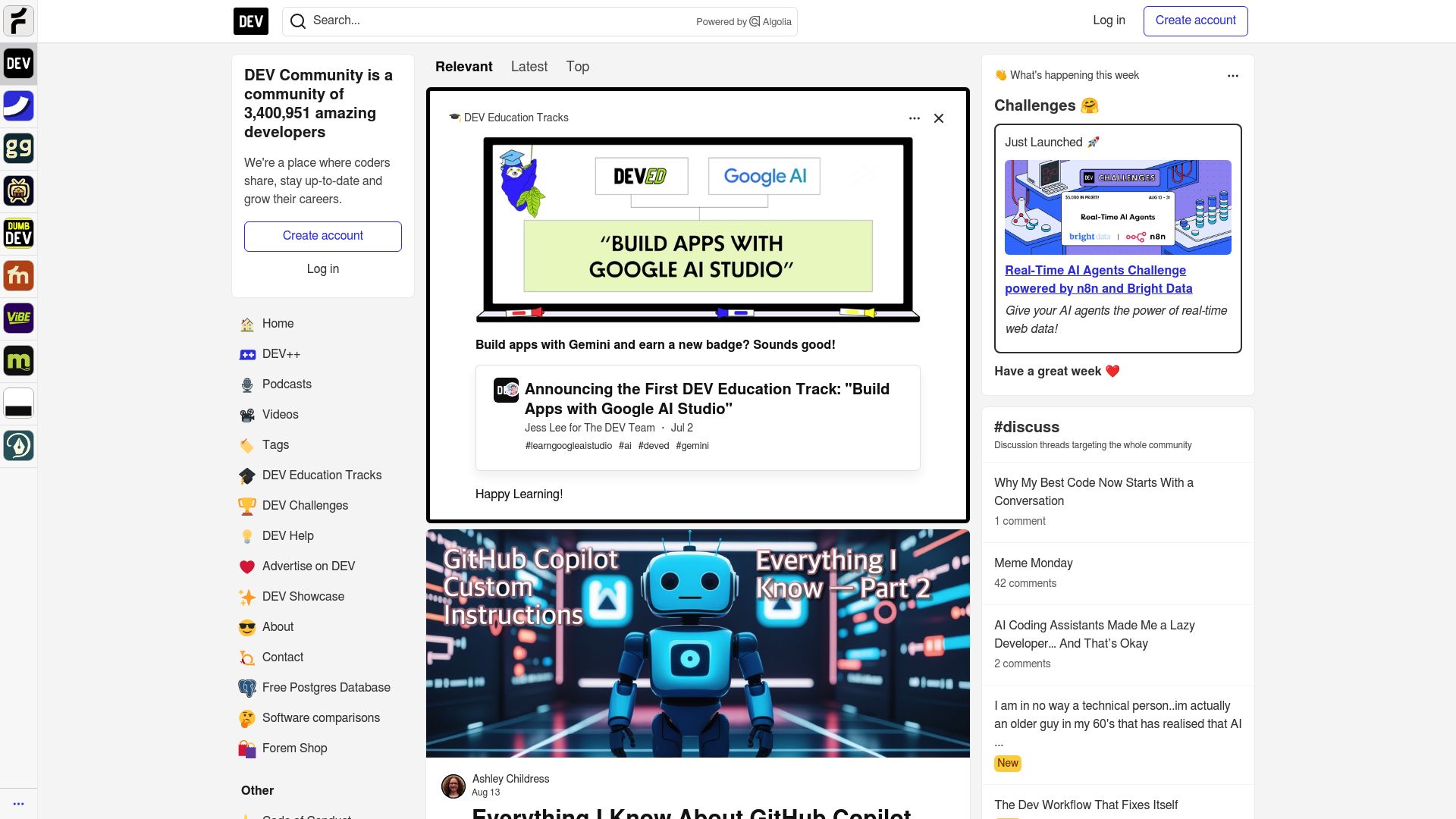
Core Features:
- Blogging and discussion threads
- Weekly challenges and tags
Key Benefits:
This platform fosters inclusive networking and helps you stay updated with sites dev trends.
Target Audience:
Everyone from juniors to senior engineers passionate about sharing and learning.
Use Cases:
- Publishing tutorials
- Career advice
- Open discussions
Pros:
Welcoming vibe, diverse voices.
Cons:
Some variation in content quality.
Example:
Their "Top 7 DEV Posts of the Week" highlights trending topics in sites dev.
Big House Technologies
Big House Technologies is redefining sites dev for those seeking no-code, AI, and rapid MVP solutions. With flexible pricing, it’s accessible for startups and enterprises.
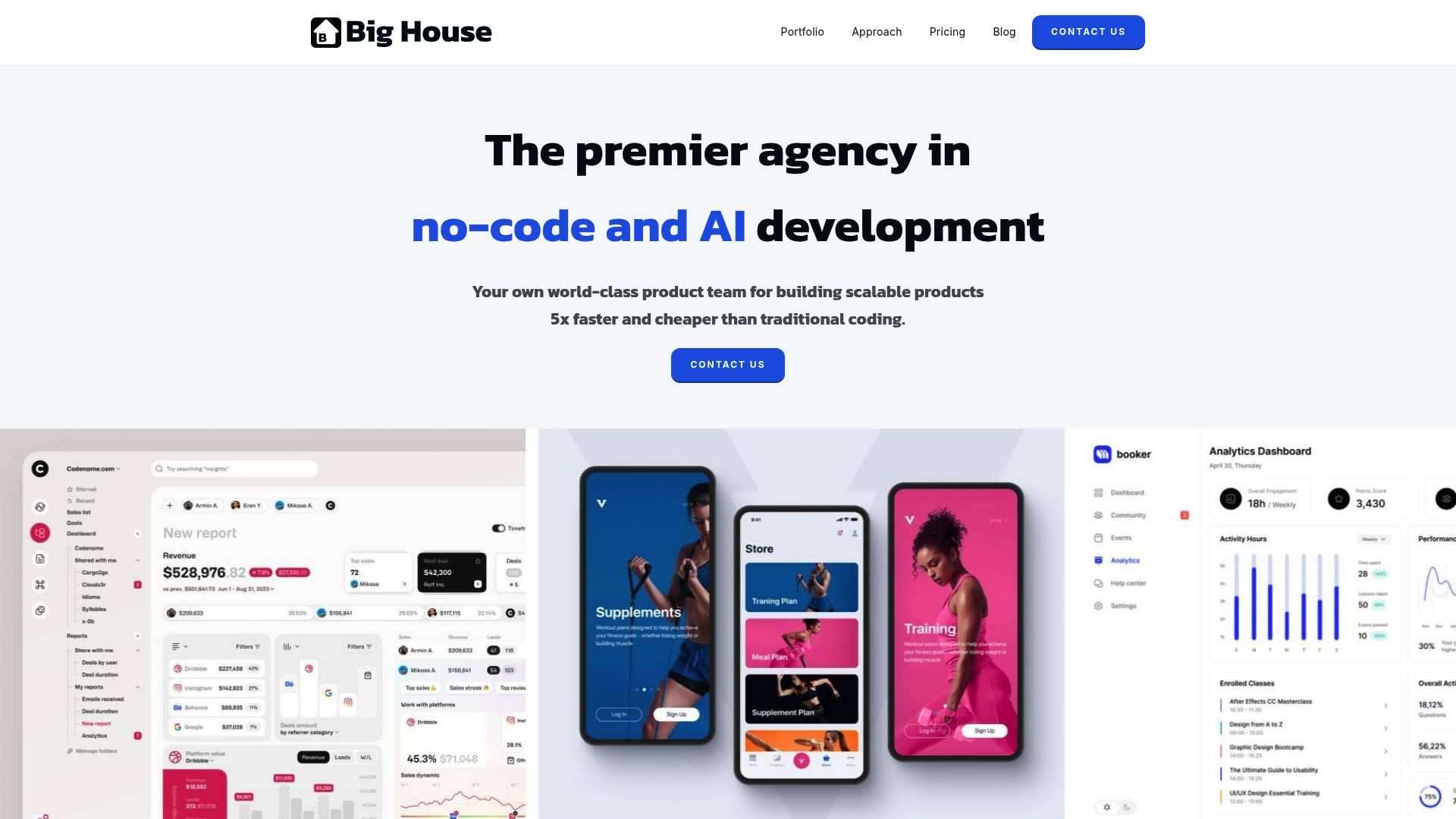
Core Features:
- No-code development (Bubble)
- AI integration (Lovable)
- UI/UX design and rapid prototyping
Key Benefits:
Clients build scalable sites dev projects up to 5x faster, often saving significant costs.
Target Audience:
Startups, business leaders, and anyone interested in quick, high-quality results.
Use Cases:
- Launching MVPs and internal tools
- Digital transformation
- Leveraging AI without deep technical skills
Pros:
End-to-end service, huge savings, collaborative approach.
Cons:
Best for those open to no-code/AI.
Example:
IMSI (Oil & Gas) saved €2M using Big House's sites dev approach. For a deeper dive, explore how No-code solutions for developers can accelerate your next project.
Strapi
Strapi brings flexibility to sites dev with its open-source, headless CMS. Free for self-hosting, with cloud and enterprise plans for scaling.
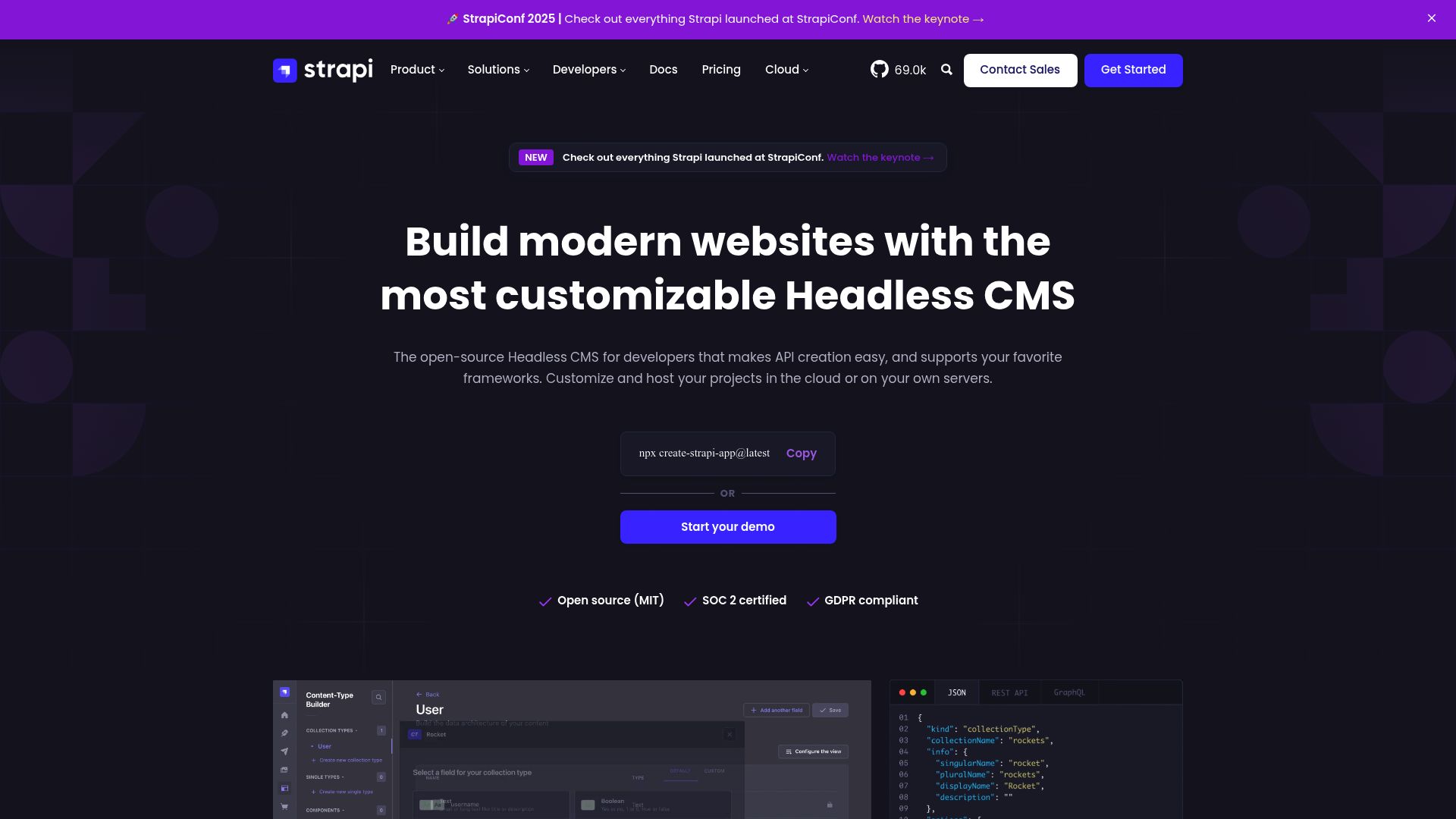
Core Features:
- REST/GraphQL API creation
- Plugin marketplace
- Customizable permissions
Key Benefits:
It empowers sites dev teams to manage content and APIs with speed and flexibility.
Target Audience:
Web/app developers, agencies, enterprises needing scalable content solutions.
Use Cases:
- Content-driven websites
- Mobile app backends
- eCommerce platforms
Pros:
Self-hostable, extensible.
Cons:
Customization can be complex.
Example:
IBM and NASA rely on Strapi for mission-critical sites dev needs.
Forem
Forem is the engine behind many community-driven sites dev spaces. It's open-source and free to self-host, with managed options available.
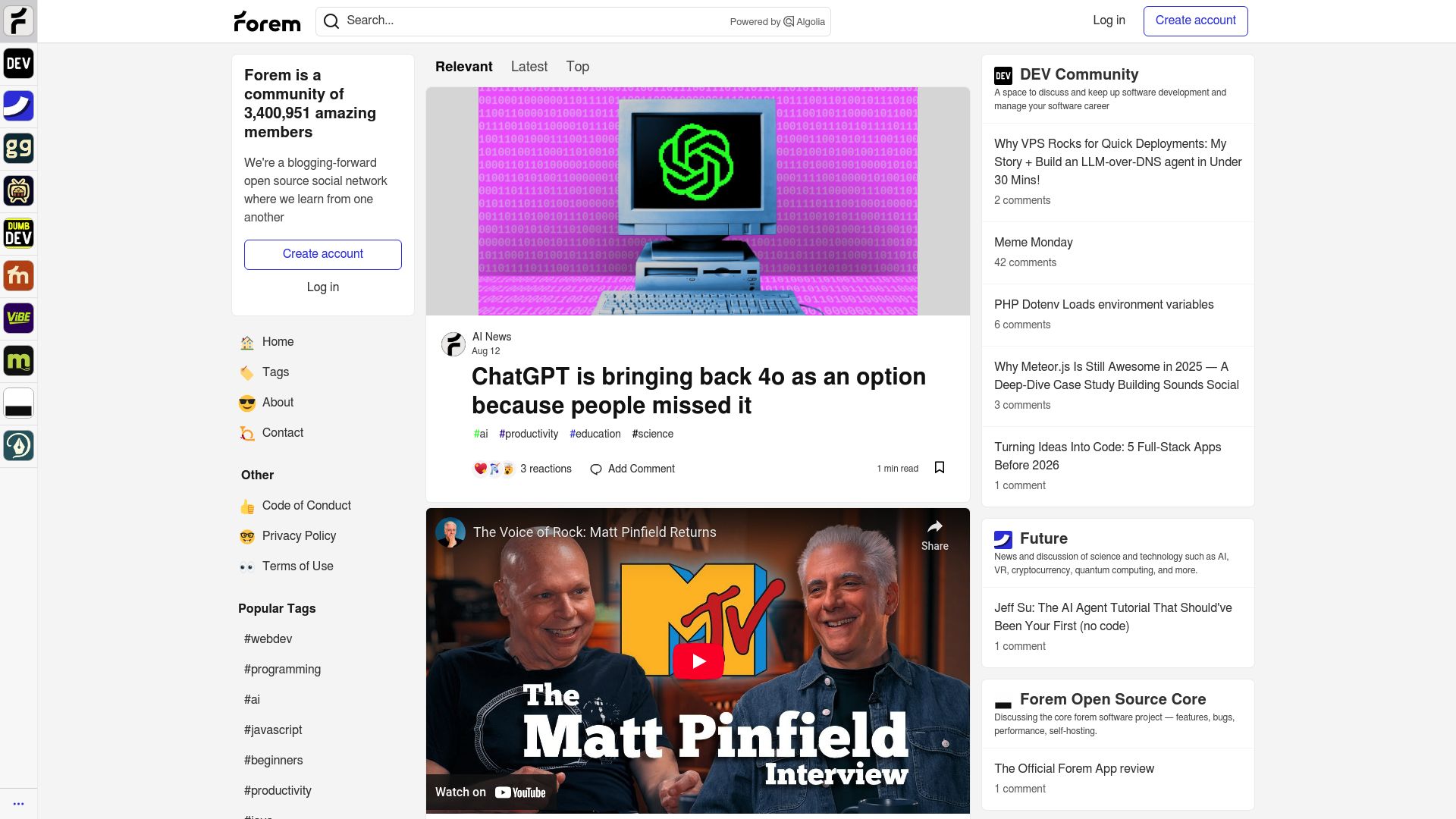
Core Features:
- Customizable community forums (Subforems)
- Open-source codebase
Key Benefits:
Build and nurture tailored sites dev communities with full control.
Target Audience:
Community builders, tech content creators, organizations.
Use Cases:
- Launching niche forums
- Internal company communities
Pros:
Highly customizable, open-source.
Cons:
Requires setup for self-hosting.
Example:
DEV Community itself runs on Forem, showcasing its power for sites dev engagement.
MDN Web Docs
MDN Web Docs is a staple for sites dev professionals in need of trustworthy documentation. It's free and covers everything web.
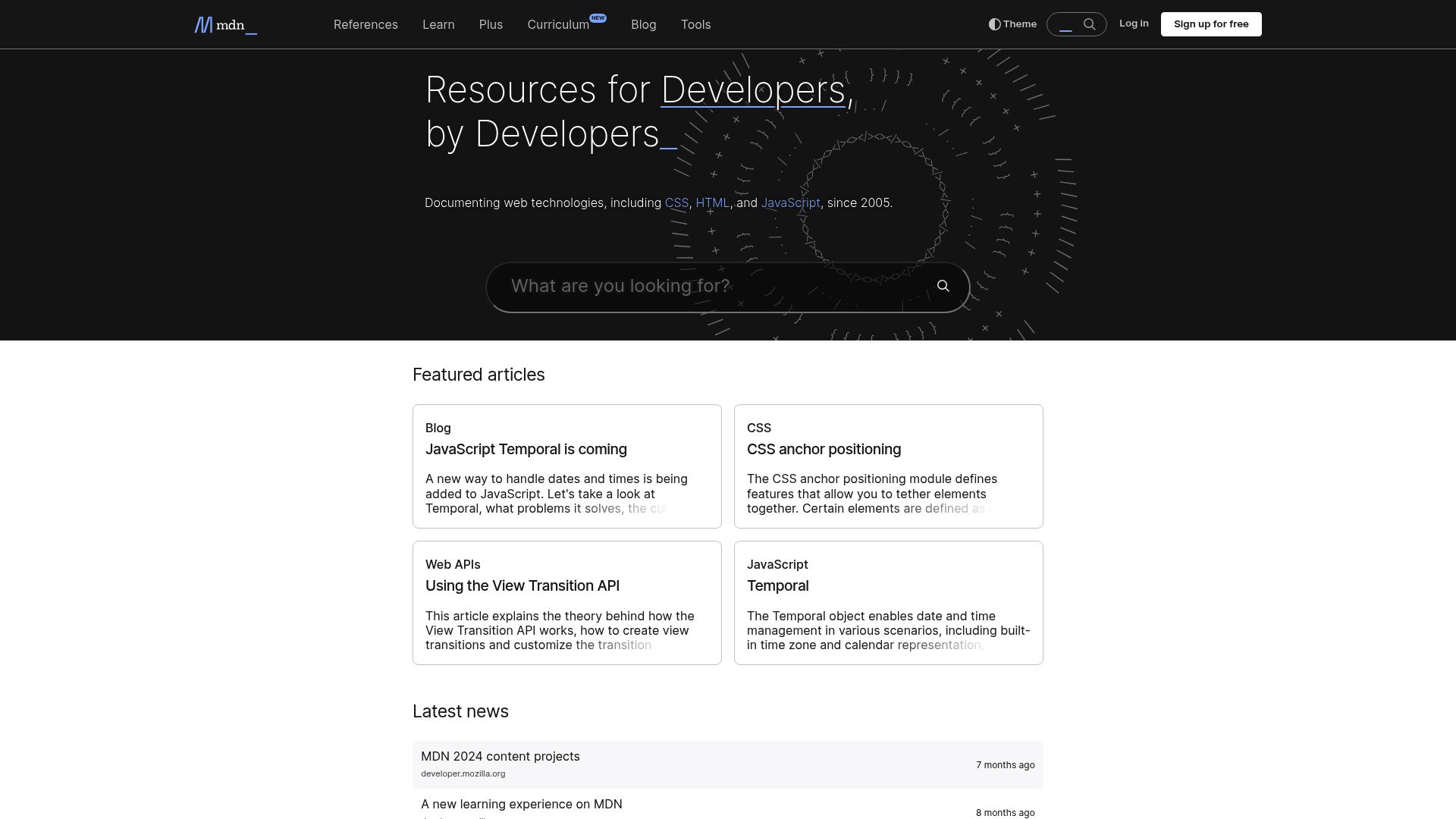
Core Features:
- In-depth docs for HTML, CSS, JavaScript, and web APIs
- Live code examples
Key Benefits:
Clear, up-to-date, and beginner-friendly, it's the reference for sites dev best practices.
Target Audience:
Frontend and full-stack web developers, students.
Use Cases:
- Quick code references
- Learning new APIs
- Troubleshooting
Pros:
Authoritative, easy to navigate.
Cons:
Primarily web-focused.
Example:
Millions use MDN daily for sites dev tasks.
Discord Developer Communities
Discord has become the real-time hub for sites dev discussions. It's free and supports text, voice, and integrations.
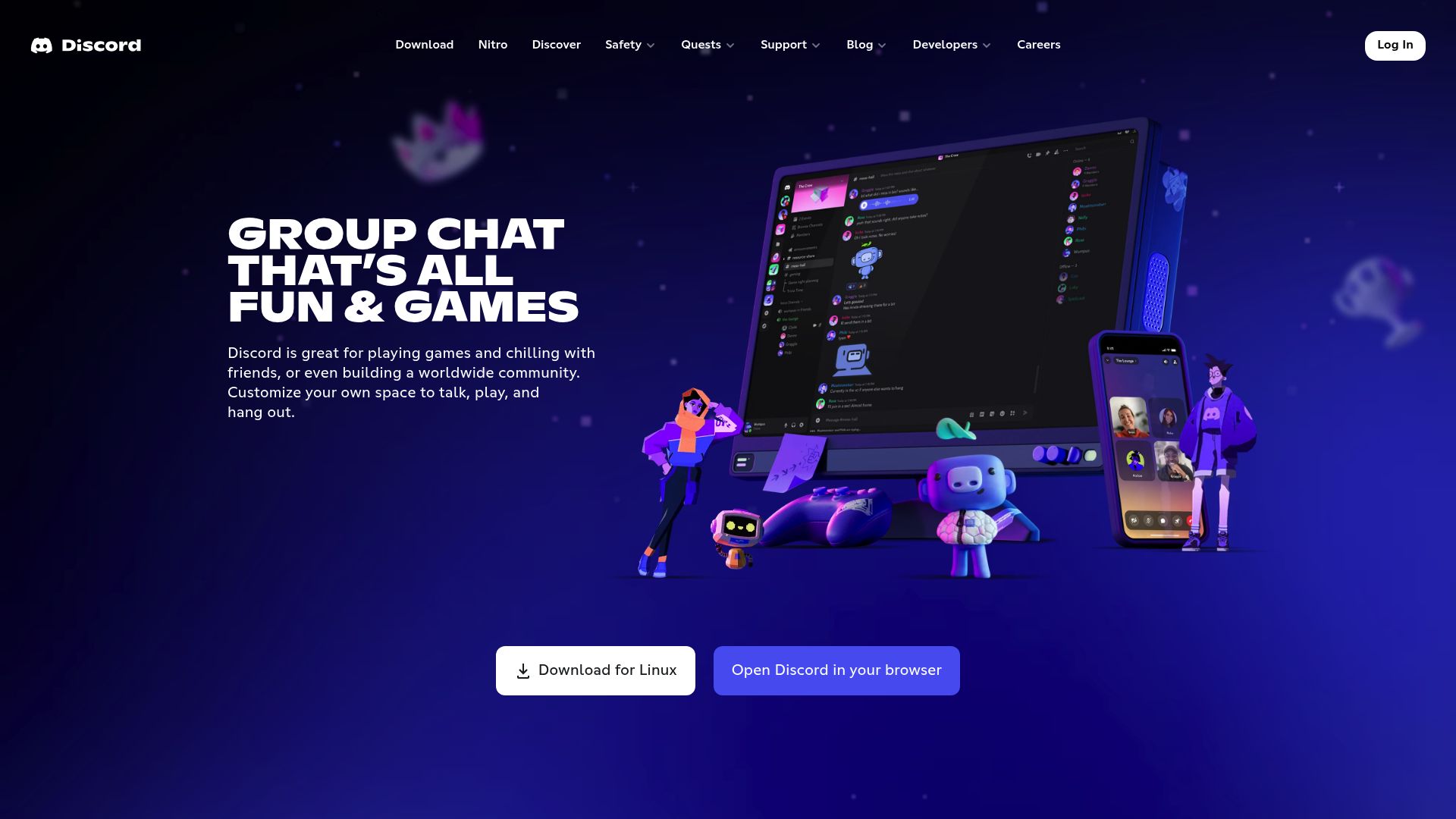
Core Features:
- Community servers for every dev topic
- Real-time chat and voice
Key Benefits:
Get instant feedback and connect with niche sites dev groups worldwide.
Target Audience:
Developers seeking support, networking, or collaboration.
Use Cases:
- Troubleshooting with peers
- Hackathons and live events
- Open-source collaboration
Pros:
Fast, diverse communities.
Cons:
Some servers can be noisy or lack moderation.
Example:
Popular servers focus on React, Python, and AI, helping sites dev members solve problems quickly.
freeCodeCamp
For those starting in sites dev or switching careers, freeCodeCamp is a game-changer. It's 100% free.

Core Features:
- Interactive coding curriculum
- Certifications and community forums
Key Benefits:
Hands-on, project-based learning helps users quickly build real-world sites dev skills.
Target Audience:
Beginners, intermediates, and career changers.
Use Cases:
- Learning web development
- Building a portfolio
- Earning certifications
Pros:
Practical, self-paced, supportive.
Cons:
Requires motivation and discipline.
Example:
Over 40,000 graduates have landed jobs in sites dev after completing the program.
Hacker News
Hacker News is where sites dev pros catch breaking tech news and candid discussions. It’s free and highly curated.

Core Features:
- Tech news aggregator
- Discussion threads
- Job board
Key Benefits:
Stay ahead of trends and discover new tools shaping the sites dev landscape.
Target Audience:
Developers, entrepreneurs, and tech enthusiasts.
Use Cases:
- Tracking industry news
- Discovering new startups
- Engaging in high-level discourse
Pros:
High signal-to-noise, active moderation.
Cons:
Minimalist interface, can feel exclusive.
Example:
Many viral stories and product launches in sites dev start here.
How to Choose the Right Dev Resource Sites for Your Needs
Choosing the right sites dev can make all the difference in your productivity, learning, and career growth. With so many platforms available, it's easy to feel overwhelmed. The key is to approach your selection strategically, ensuring each site dev you bookmark aligns with your goals and workflow.
Assess Your Needs and Goals
Start by reflecting on your current skills, experience, and long-term ambitions. Are you a beginner seeking foundational knowledge, or an experienced developer aiming to master new frameworks? Identifying your primary objectives will narrow down which sites dev are truly valuable for you.
Ask yourself:
- Do you need quick code help, or are you seeking in-depth tutorials?
- Are you interested in no-code/AI solutions or traditional programming?
- Do you want to build a portfolio, network, or contribute to open source?
For those interested in building custom applications, resources like Guide to custom application development can help you map out the exact platforms and tools to match your project needs. The right sites dev can accelerate your journey, whether you're launching an MVP, learning a new language, or joining a developer community.
Evaluate Platform Quality and Community
Not all sites dev offer the same level of quality or up-to-date information. Before committing, check if the platform is actively maintained, regularly updated, and well-moderated. Look for indicators like recent posts, active discussions, or frequent documentation updates.
A strong community is another hallmark of a valuable site dev. Platforms with engaged users offer faster support, networking opportunities, and a greater diversity of perspectives. Pay attention to reputation systems, moderation policies, and the presence of knowledgeable contributors.
When evaluating, consider:
- How quickly are questions answered?
- Is there a clear system for flagging outdated or incorrect content?
- Does the community foster collaboration and respect?
By prioritizing quality and community, you’ll ensure the sites dev you choose remain reliable sources as you grow.
Consider Pricing and Access
Budget is always a factor—fortunately, many essential sites dev offer free or freemium access. However, some advanced features or community spaces may require a subscription or one-time payment.
Compare platforms by:
- Free vs. paid features (e.g., private repos, advanced analytics)
- Value for money: Does the paid tier unlock tools you genuinely need?
- Accessibility: Can you access core resources without a paywall?
Remember, investing in a premium tier can sometimes save time or unlock collaboration tools that justify the cost. Evaluate how each sites dev fits your workflow and budget before subscribing.
Generalist vs. Specialist: Which Sites Dev Suit You?
Some sites dev serve broad audiences, while others cater to niche interests. Understanding the difference helps you build a balanced toolkit.
| Type | Description | Examples | Best For |
|---|---|---|---|
| Generalist | Wide range of topics, large communities | Stack Overflow, GitHub | Broad troubleshooting, networking |
| Specialist | Focused on specific tech or domains | Strapi, Discord dev servers | Deep dives, targeted support, latest trends |
If you’re exploring a new tech stack, generalist sites dev provide fast answers and diverse viewpoints. When working on a specialized project, niche communities offer in-depth expertise and tailored discussions.
Combine and Leverage Multiple Sites Dev
No single site dev covers every need. The most effective developers mix and match platforms—using Stack Overflow for troubleshooting, GitHub for collaboration, and Strapi for content management.
Research shows that developers who use at least three resource sites dev resolve problems 40% faster (2024 survey data). Integrating AI-powered tools can further amplify your productivity. For example, the Impact of AI on Developer Productivity study highlights how combining traditional and AI-driven platforms helps streamline workflows and boost output.
Don’t hesitate to experiment and create your own blend of sites dev for coding, learning, and networking.
Integrate Sites Dev into Your Workflow
Once you’ve chosen your core sites dev, make them part of your daily routine for maximum benefit.
Try these strategies:
- Bookmark your top sites dev in your browser for quick access.
- Use Slack or Discord integrations for real-time updates.
- Set aside weekly time to explore new content or forums.
- Sync documentation and code resources across devices.
Choosing the right sites dev is an ongoing process. As your skills evolve, so should your toolkit. Stay curious, keep experimenting, and let your collection of sites dev grow alongside your career.
Now that you’ve got the scoop on 2025’s top dev resource sites, why not take your next project from idea to reality at record speed? Whether you’re building your first MVP or looking to scale faster without getting bogged down in code, you don’t have to wait months to see results. With the right tools and a smart approach, you can bring your vision to life in just weeks—and Big House Technologies is here to help you do exactly that. Ready to see how quickly you can launch? Launch Your MVP in Weeks, Not Months




About Big House
Big House is committed to 1) developing robust internal tools for enterprises, and 2) crafting minimum viable products (MVPs) that help startups and entrepreneurs bring their visions to life.
If you'd like to explore how we can build technology for you, get in touch. We'd be excited to discuss what you have in mind.
Other Articles
Discover proven custom development strategies and best practices for 2025. Master planning, execution, and emerging trends to optimize your next project’s success.
Discover how to choose the best enterprise digital transformation partners for 2026 with expert insights, evaluation steps, and future-proof strategies for success.
Learn how to build an MVP with no-code in 2026 using proven steps, top platforms, and expert tips to validate your idea faster and launch with confidence.

